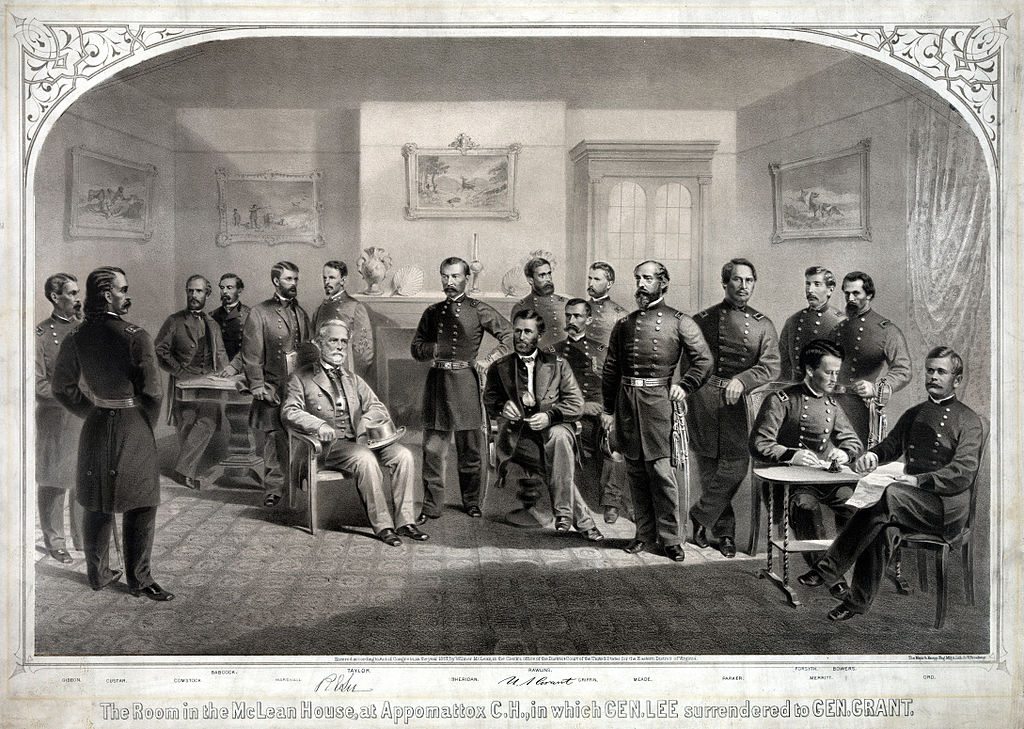Throwback Thursday: The Civil War’s End in Boston

Appomattox Courthouse Surrender image via Wikimedia Commons
Today marks the 150th anniversary of General Robert E. Lee’s surrender at Appomattox Courthouse, and with it, the end of the Civil War. What did that day look like in Boston, so far from the battlefield?
Actually, the city’s celebrations had come nearly a week earlier, on April 3, when Union troops captured the Confederate capital city of Richmond, Virginia, and the end of the war seemed inevitable. The scene in Boston was described at length by William Schouler, the state’s adjutant general, who wrote a history of Massachusetts during the Civil War:
State Street and the Merchants’ Exchange were thronged with excited people. The newspaper offices were crowded, and the bulletin boards on which was written ‘Richmond occupied by the Union forces,’ were looked at and read a hundred times by the same person.
The crowd gathered at Merchants’ Exchange for public prayer, singing, and a spontaneous band concert.
The crowd was immense, and swayed to and fro like the waters of the ocean ; and the cheers given were like its roar. Never have we seen a sight like that; business, private and public griefs, all were forgotten, and absorbed in the general rejoicing. Shortly after one o’clock, all the bells in the city were rung, and a salute was fired, by order of the Governor, on the Common.
Across the state, people celebrated by displaying red, white, and blue, illuminating their homes, and ringing bells. There were fireworks in Roxbury and public meetings in Cambridge. Rejoicing like this continued through April 9, when Lee formally surrendered to Grant, and onward until April 15. On that day, President Abraham Lincoln was assassinated, rendering the nation somber as it began to reckon with the meaning of the conflict that had just come to a close.


